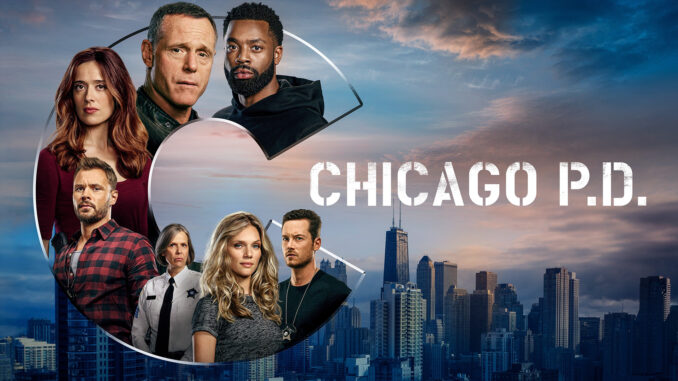
Chicago P.D. vs SVU: Which Police Drama Rules the Streets?
The urban landscape, with its labyrinthine alleys, towering skyscrapers, and teeming populace, has long served as the ultimate stage for the drama of law enforcement. For decades, television has brought us into this world, painting vivid portraits of the men and women tasked with upholding order. Among the most enduring and impactful of these narratives are Dick Wolf’s twin titans: Chicago P.D. and Law & Order: Special Victims Unit. Both operate within the same sprawling universe, yet they carve out distinct territories, each claiming a unique dominion over the “streets” they depict. The question isn’t merely which one is “better,” but rather, which interpretation of the streets, and the justice enacted upon them, truly rules the urban pulse.
Chicago P.D. plunges viewers directly into the raw, visceral grit of the city’s underbelly. Its “streets” are literal: the darkened warehouses, the bullet-riddled gang territories, the drug dens, and the high-speed chase routes that crisscross the Windy City. This is a show defined by action, adrenaline, and a pragmatic, often brutal, philosophy of justice. At its core is Sergeant Hank Voight, a character who walks a perpetual moral tightrope, blurring the lines between cop and criminal in his relentless pursuit of a cleaner Chicago. The Intelligence Unit operates with a scorched-earth mentality, believing that to truly rule these dangerous streets, one must understand and sometimes even mirror the ruthlessness of the criminals themselves.
Illustratively, an episode of Chicago P.D. might open with a drive-by shooting, immediately thrusting the viewer into the chaos. The subsequent investigation isn’t a meticulous forensic puzzle so much as a rapid-fire chase, a series of tense interrogations, and often, a violent confrontation. Voight’s methods – bending rules, extracting information through intimidation, and meting out his own form of street justice – are not just tolerated but often presented as necessary evils in a city that demands a firm, unyielding hand. The show rules the streets through sheer force, demonstrating that on these particular asphalt battlegrounds, sometimes the only language understood is the language of power and immediate consequence. The viewer feels the weight of every punch, the urgency of every pursuit, and the constant threat that lurks in the shadows.
In stark contrast, Law & Order: Special Victims Unit rules a different, arguably more insidious, kind of “street”: the emotional, psychological, and systemic landscape of trauma and injustice. While its New York City backdrop is ever-present, the crimes it depicts – sexual assault, child abuse, domestic violence – occur often behind closed doors, in the intimate spaces that become battlegrounds of a different sort. The show’s streets are not primarily about bullets and car chases, but about the corridors of power, the sterile rooms of hospitals, the cold silence of police stations, and the adversarial battlegrounds of courtrooms.
SVU illustrates its dominion through empathy and meticulous procedural detail. Lieutenant Olivia Benson, as the heart and soul of the unit, embodies a profound understanding of victim psychology and the long, arduous road to healing. An illustrative episode often begins with the horrific discovery of a crime, but the subsequent narrative shifts from the initial investigation to the delicate process of interviewing a traumatized victim, navigating the complexities of consent, dealing with the systemic failures of the justice system, and fighting for legal recourse. The “street fight” here is not just against the perpetrator, but against prejudice, victim-blaming, legal loopholes, and the crushing weight of institutional indifference. SVU rules these streets by giving voice to the voiceless, by shining a light on the darkest corners of human depravity, and by relentlessly pursuing justice not just through apprehension, but through conviction and, ideally, healing.
Ultimately, the question of which drama “rules the streets” is not a zero-sum game, but rather a testament to the diverse ways in which law enforcement engages with the urban environment. Chicago P.D. unequivocally rules the physical streets, dominating with its kinetic energy, morally ambiguous protagonists, and a focus on the immediate, tangible threats that plague a metropolis. It is a show about holding the line, often by any means necessary, against the palpable forces of chaos. Its influence is felt in the visceral impact of its action and the stark, uncompromising reality it portrays.
Law & Order: Special Victims Unit, however, rules the more abstract, yet profoundly impactful, streets of human experience and systemic justice. It commands its territory through a steadfast commitment to victim advocacy, an unflinching exploration of complex social issues, and a deep dive into the psychological toll of crime. Its power lies not in its explosive action, but in its emotional resonance, its sustained commitment to portraying the long, often frustrating, path to justice within the legal system.
Both shows, in their own powerful ways, dictate the narrative of their respective streets. Chicago P.D. asserts its dominance with a forceful, visible hand, patrolling the tangible dangers that threaten the city’s peace. SVU wields its influence by delving into the hidden wounds of society, fighting for justice in the quiet, often overlooked corners where humanity’s darkest impulses manifest. In the end, the discerning viewer chooses their ruler based on which interpretation of the urban struggle resonates most deeply – the blunt force of immediate intervention, or the enduring fight for systemic and emotional justice. Both are vital, both are compelling, and both, in their distinct ways, powerfully command the streets they call home.
